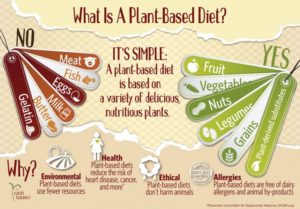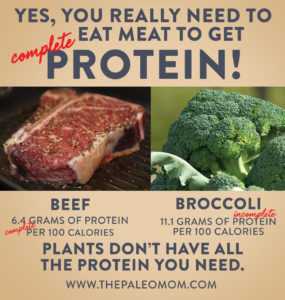
A November 2018 study 1 of 9633 middle-aged and elderly individuals looked at their levels of adiposity (how fat they were) and compared the results with data collected over a period of 27 years on what foods they ate. The results are pretty clear.
Study method
Dietary data was collected using food-frequency questionnaires. Plant-based were given a positive score and animal-based foods were given a negative score. Thus, a higher score reflected a more plant-based diet.
Data on anthropometrics 2 and body composition was collected every 3 to 5 years from 1989 to 2016.
The results were then analysed by the research team to see if there were any clear indications of which dietary choice favoured becoming overweight.
Study results
Increased adherence to plant-based diets was associated with the following:
- lower BMI
- smaller waist circumference
- lower fat mass index
- lower body fat percentage
Study conclusion
“In this population-based cohort of middle-aged and elderly participants, a higher adherence to a more plant-based, less animal-based diet was associated with less adiposity over time, irrespective of general healthfulness of the specific plant- and animal-based foods.”
Final comment
It’s interesting that these results are irrespective of the healthfulness of the plant- and animal-based foods. What’s clear to me is that there are a fair number of overweight vegetarians and vegans, but I’ve yet to see any overweight individuals who consumed a non-SOS WFPB diet. However, for those of us who are not quite ready to stick to eating the latter, it’s reassuring to know that all we have to do to lose those extra (and health-damaging) kilograms of fat is to eat more plant foods and less animal foods.

References
- Epidemiology. 2018 Nov 30. doi: 10.1097/EDE.0000000000000961. Plant-based diet and adiposity over time in a middle-aged and elderly population: the Rotterdam Study. Chen Z, Schoufour JD, Rivadeneira F, Lamballais S, Ikram MA, Franco OH, Voortman T. [↩]
- Anthropometry refers to the measurement of the human individual. An early tool of physical anthropology, it has been used for identification, for the purposes of understanding human physical variation. [↩]

